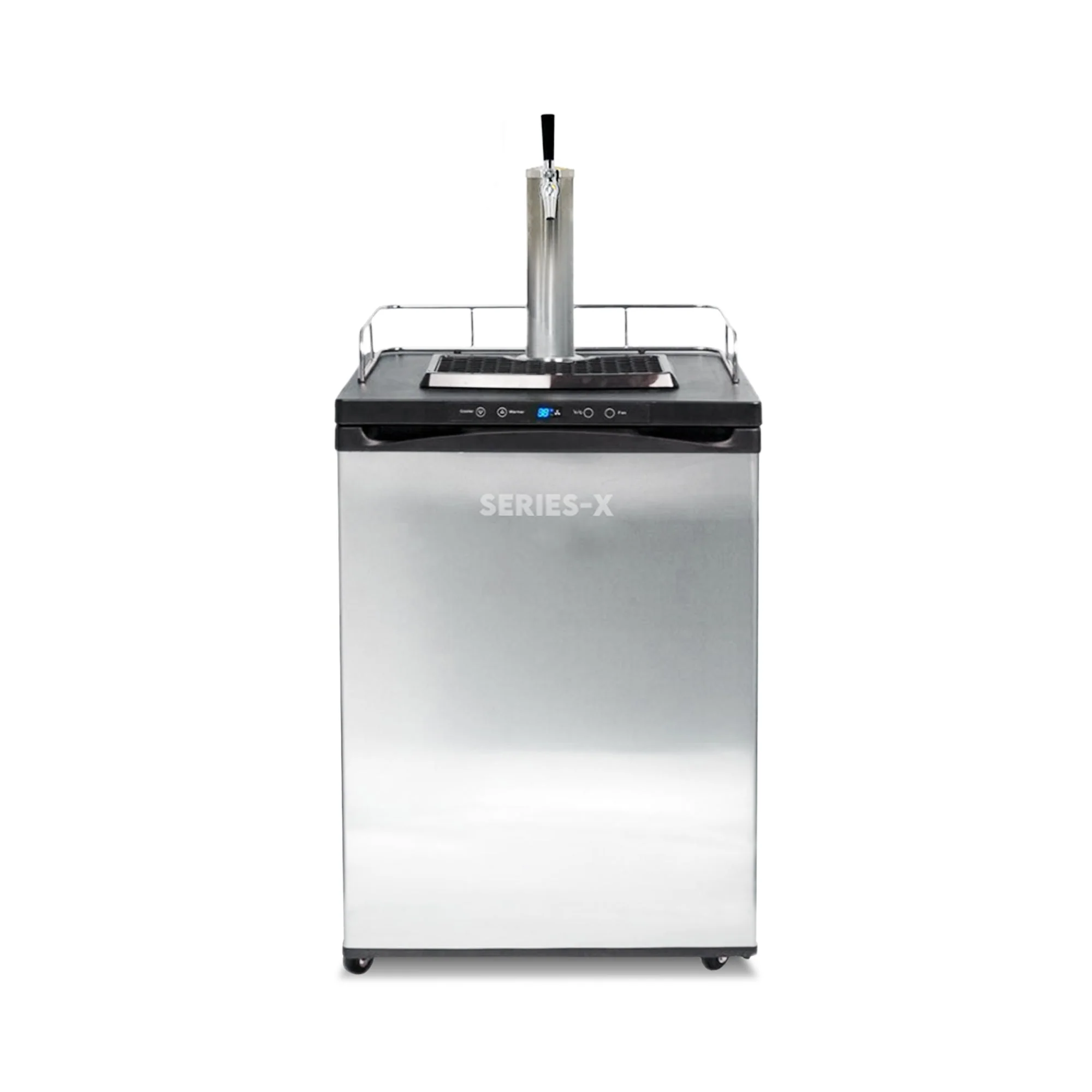Home>Home Appliances>Home Automation Appliances>What Kind Of AI Is Alexa?


Home Automation Appliances
What Kind Of AI Is Alexa?
Modified: October 18, 2024
Discover the capabilities of Alexa, a leading AI in home automation appliances. Learn how Alexa's advanced technology enhances your smart home experience. Unlock the potential of AI with Alexa.
(Many of the links in this article redirect to a specific reviewed product. Your purchase of these products through affiliate links helps to generate commission for Storables.com, at no extra cost. Learn more)
Introduction
Read more: What Is AI In Construction
Understanding Artificial Intelligence
Artificial Intelligence (AI) is revolutionizing the way we interact with technology in our daily lives. It encompasses a wide range of capabilities, from speech recognition to decision-making processes, and has become an integral part of smart home devices. One such device that has seamlessly integrated AI into its functionality is Amazon's Alexa.
As we delve into the world of AI and its application in home automation, it's important to understand the evolution of Alexa and the advanced AI capabilities that make it a standout in the realm of smart home appliances. Alexa's AI technology has not only transformed the way we perform routine tasks but has also opened doors to a future where human-machine interaction continues to evolve.
In the following sections, we will explore the evolution of Alexa, delve into its AI capabilities, and uncover the innovative ways in which Alexa utilizes AI to enhance the user experience. Moreover, we will glimpse into the future of Alexa and AI, offering insights into the exciting possibilities that lie ahead in the realm of smart home technology. Join us on this journey as we unravel the fascinating world of AI embedded within the fabric of Alexa, and discover the potential it holds for the future.
Read more: What Is AI In Construction
Understanding Artificial Intelligence
Artificial Intelligence (AI) is a branch of computer science that focuses on creating systems capable of performing tasks that typically require human intelligence. These tasks include learning, reasoning, problem-solving, understanding natural language, and perceiving the environment. AI is often categorized into two broad types: narrow AI and general AI.
Narrow AI, also known as weak AI, is designed to handle a specific task or a narrow range of tasks. This form of AI powers applications like virtual personal assistants, recommendation systems, and language translation services. On the other hand, general AI, also referred to as strong AI, aims to exhibit human-like intelligence and cognitive abilities. While general AI remains a theoretical concept, narrow AI has made significant strides in transforming various industries, including home automation.
Within the context of smart home devices, AI plays a pivotal role in enabling seamless interaction between users and their appliances. From adjusting thermostat settings to managing daily schedules, AI-powered smart home systems offer convenience, personalization, and efficiency. These systems leverage machine learning algorithms to understand user preferences, anticipate needs, and adapt to evolving usage patterns, thereby enhancing the overall user experience.
As technology continues to advance, AI is poised to become even more ingrained in our daily lives, shaping the future of home automation and redefining the way we interact with our living spaces. The integration of AI in smart home appliances like Alexa represents a significant leap forward in making homes more intuitive, responsive, and interconnected.
By comprehending the fundamental concepts of AI and its applications in the realm of home automation, we can gain a deeper appreciation for the transformative capabilities of devices like Alexa, which seamlessly blend advanced technology with everyday convenience.
The Evolution of Alexa
Amazon’s Alexa has undergone a remarkable evolution since its initial introduction, transcending its origins as a voice-activated assistant to become a central hub for smart home control and a gateway to a myriad of AI-powered applications. The journey of Alexa’s evolution is a testament to the rapid advancement of AI technology and its integration into everyday consumer devices.
When Alexa made its debut in 2014 alongside the Amazon Echo, it primarily served as a voice-activated virtual assistant capable of performing tasks such as setting alarms, providing weather updates, and playing music. Over time, Amazon expanded Alexa’s capabilities by integrating it with a diverse array of smart home devices, allowing users to control lighting, thermostats, security systems, and more through voice commands.
As Alexa’s ecosystem continued to grow, Amazon introduced new features and skills, empowering Alexa to perform increasingly complex tasks. The introduction of AI-driven natural language processing enhanced Alexa’s ability to comprehend and respond to a wide range of queries and commands, making interactions with the virtual assistant more intuitive and conversational.
Furthermore, Amazon’s commitment to fostering a vibrant developer community led to the creation of third-party skills, expanding Alexa’s functionality beyond its native capabilities. These skills enable users to accomplish tasks such as ordering food, requesting rides, and accessing information from a multitude of sources, effectively transforming Alexa into a versatile platform for streamlined daily living.
With the integration of AI advancements such as machine learning and predictive analytics, Alexa has evolved into a proactive assistant that can anticipate user needs and provide personalized recommendations. This evolution has not only elevated the convenience of smart home control but has also positioned Alexa as a multifaceted AI companion capable of enriching various aspects of users’ lives.
As Alexa continues to evolve, its integration with emerging technologies such as Internet of Things (IoT) devices, augmented reality, and advanced sensors holds the promise of further enhancing its capabilities and expanding its utility in the realm of smart home automation. The evolution of Alexa exemplifies the transformative potential of AI in redefining the way we interact with technology and underscores the ongoing innovation driving the future of smart home appliances.
Alexa’s AI Capabilities
Alexa, powered by advanced artificial intelligence (AI), boasts a diverse array of capabilities that have redefined the landscape of smart home automation. From natural language processing to predictive analytics, Alexa’s AI underpins its ability to understand and respond to user commands, adapt to preferences, and seamlessly integrate with a wide range of smart home devices.
One of Alexa’s standout AI capabilities is its natural language understanding, which enables it to interpret and process a broad spectrum of user queries and commands. Leveraging sophisticated algorithms, Alexa can comprehend conversational nuances, contextual cues, and variations in language, facilitating a more intuitive and natural interaction with users.
Moreover, Alexa’s AI empowers it to continuously learn and improve its responsiveness through machine learning algorithms. By analyzing user interactions and feedback, Alexa can refine its understanding of individual preferences, refine its responses, and adapt to evolving usage patterns, thereby delivering a personalized and tailored experience to each user.
Another key facet of Alexa’s AI prowess lies in its predictive analytics capabilities. Through the analysis of historical data and user behaviors, Alexa can anticipate user needs, proactively suggest relevant information, and automate routine tasks, streamlining daily activities and enhancing user convenience.
Furthermore, Alexa’s AI extends to its integration with third-party skills and services, allowing developers to leverage AI technologies to create innovative and specialized capabilities for the platform. This collaborative ecosystem enables Alexa to harness the power of AI-driven applications, expanding its functionality and catering to diverse user needs.
With AI at its core, Alexa has also made significant strides in understanding user preferences and adapting to individual lifestyles. Whether it’s curating personalized music playlists, recommending compatible smart home devices, or providing tailored news updates, Alexa’s AI capabilities enable it to deliver a customized experience that aligns with the unique preferences and routines of each user.
As AI continues to advance, Alexa remains at the forefront of integrating cutting-edge technologies to enhance its capabilities further. The fusion of AI with voice recognition, natural language processing, and predictive modeling has positioned Alexa as a sophisticated and adaptive virtual assistant, reshaping the landscape of smart home automation and setting new benchmarks for seamless human-machine interaction.
Alexa is an example of artificial intelligence known as a virtual assistant. It uses natural language processing and machine learning to understand and respond to user commands and questions.
Read more: What Is Alexa
How Alexa Uses AI
Alexa harnesses the power of artificial intelligence (AI) in multifaceted ways, leveraging advanced technologies to deliver a seamless and intuitive user experience within the realm of smart home automation. Through the integration of AI-driven algorithms and processes, Alexa adeptly interprets user commands, adapts to individual preferences, and orchestrates interconnected smart home devices with precision and efficiency.
At the core of Alexa’s utilization of AI is its natural language processing (NLP) capabilities. By employing sophisticated NLP algorithms, Alexa can comprehend and interpret a diverse range of user queries and commands, allowing for fluid and conversational interactions. This enables users to engage with Alexa in a natural manner, issuing commands and seeking information without the need for rigid or predefined syntax.
Bolstering its AI prowess, Alexa employs machine learning algorithms to continuously enhance its responsiveness and adaptability. By analyzing user interactions and feedback, Alexa refines its understanding of individual preferences, tailoring its responses and recommendations to align with the unique needs and habits of each user. This personalized approach contributes to a more tailored and user-centric smart home experience.
Furthermore, Alexa’s AI capabilities extend to predictive analytics, enabling the virtual assistant to anticipate user needs and automate routine tasks. By leveraging historical data and user behavior patterns, Alexa can proactively suggest relevant information, streamline daily activities, and seamlessly integrate with a myriad of smart home devices, fostering a cohesive and efficient ecosystem within the home environment.
Moreover, Alexa’s AI utilization is exemplified through its integration with an extensive array of third-party skills and services. Developers leverage AI technologies to create specialized capabilities and applications for Alexa, enriching the platform with diverse functionalities that cater to a wide spectrum of user requirements. This collaborative ecosystem empowers Alexa to offer an expansive and dynamic range of services, all underpinned by AI-driven innovation.
By amalgamating AI with voice recognition, natural language processing, and predictive modeling, Alexa has transcended the role of a mere virtual assistant to become a sophisticated orchestrator of smart home automation. Its seamless integration of AI technologies not only streamlines daily tasks but also augments the overall user experience, setting a precedent for the seamless integration of AI in consumer-facing technologies.
The Future of Alexa and AI
The trajectory of Alexa and artificial intelligence (AI) heralds a future characterized by increasingly sophisticated and intuitive smart home experiences. As AI continues to advance, Alexa is poised to evolve into a more proactive and adaptive virtual assistant, redefining the dynamics of human-machine interaction within the realm of home automation.
One of the pivotal directions in the future of Alexa and AI lies in the refinement of natural language processing (NLP) capabilities. As AI algorithms become more adept at understanding nuanced language patterns and contextual cues, Alexa will seamlessly interpret and respond to complex user queries, fostering more natural and intuitive interactions. This evolution will further bridge the gap between human communication and machine responsiveness, enhancing the user experience.
Furthermore, the integration of advanced machine learning algorithms will empower Alexa to glean deeper insights into user preferences and behavior, enabling it to offer increasingly personalized and contextually relevant recommendations and services. By leveraging predictive analytics, Alexa will anticipate user needs with greater accuracy, automating routine tasks and proactively catering to individualized requirements, thereby enhancing overall efficiency and convenience.
In the realm of smart home automation, the future of Alexa and AI also entails deeper integration with emerging technologies such as augmented reality (AR) and Internet of Things (IoT) devices. This convergence will expand the scope of Alexa’s capabilities, enabling it to seamlessly interface with a diverse array of connected devices and deliver immersive and context-aware experiences that transcend traditional user interfaces.
Moreover, the collaborative ecosystem of third-party skills and services will continue to flourish, driven by AI-driven innovation. This expansion will enrich Alexa’s repertoire of functionalities, offering users a comprehensive suite of AI-powered applications and services that cater to an extensive spectrum of needs, from entertainment and productivity to health and wellness.
As Alexa and AI converge, the future holds the promise of a more interconnected and intelligent smart home ecosystem. By leveraging AI to enhance user personalization, streamline daily routines, and facilitate seamless device orchestration, Alexa is poised to become an indispensable and intuitive companion, enriching the lives of users and setting new benchmarks for the integration of AI in consumer-facing technologies.
Ultimately, the future of Alexa and AI represents a convergence of cutting-edge technology and human-centric design, culminating in a paradigm shift that redefines the way we interact with our living spaces and underscores the transformative potential of AI in shaping the future of home automation.
Frequently Asked Questions about What Kind Of AI Is Alexa?
Was this page helpful?
At Storables.com, we guarantee accurate and reliable information. Our content, validated by Expert Board Contributors, is crafted following stringent Editorial Policies. We're committed to providing you with well-researched, expert-backed insights for all your informational needs.















0 thoughts on “What Kind Of AI Is Alexa?”